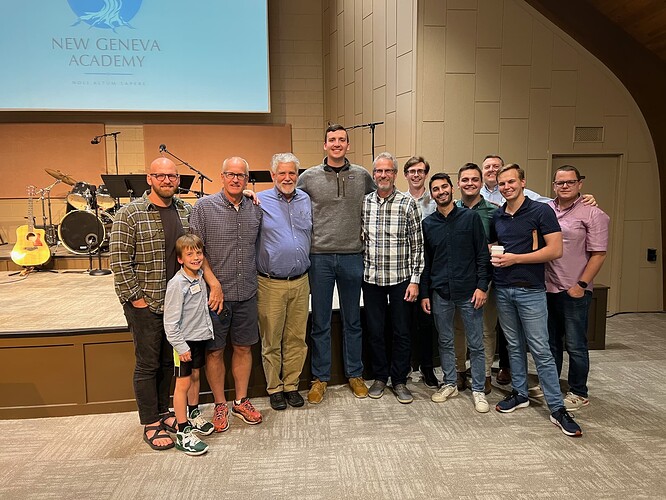From Arnold Lunn, A Saint in the slave trade: Peter Claver (1581-1654), Chapter 5, “The Church and Slavery”:
The silences of the Church have irritated many an ardent social reformer. The identification of “ prac¬ tical Christianity ” with the progressive policy of the moment would have been much easier if Christ had only been more explicit on such problems as war, slavery or the rights of women.
Christ, who was a citizen of a conquered country, never talked about self-determination or the rights of minorities. Almost his only reference to the problem of the relation between the individual and the State under which he lives, was the enigmatical command, “ Render unto Caesar the things that are Caesar’s ”, enigmatical, since the controversy between Caesar and his subjects always turns on the delicate point as to precisely what things are Caesar’s.
The Church is attacked when it speaks, and the Church is attacked for failing to speak. Christ said nothing about the Immaculate Conception, and there¬ fore the Church is wrong to have made a pronounce¬ ment on this subject. Christ said nothing about
57
58 A SAINT IN THE SLAVE TRADE
slavery, and therefore the Church is wrong to have delayed a pronouncement on this subject. The King can do no wrong. The Church can do no right.
The first draft of this chapter was submitted to a non-Catholic critic, who covered the margin with bitter protests. “ Why didn’t your infallible Church stop slavery? Surely the infallible Church ought to have known that slavery was wrong. . . . The Church could have stopped the slave trade had she wanted to ”.
I sighed gently when I read these comments. Though industrious by force of circumstance, I am idle by temperament, and I foresaw that it would be useless to discuss the relation of the Church to slavery until I had written several pages in the vain hope of making clear to my critic and to readers of his way of thinking, that there is a very real distinc¬ tion between an infallible Church and a Delphic oracle.
At such moments one cannot help wishing that theologians had made matters easier for the faithful by a nicer choice of words. A learned theologian once said to me that much trouble would have been saved if the word “ inerrancy ” were substituted for the word “ infallibility ”, for it is not only the ignorant but also those who have more learning than judgment who habitually confuse infallibility with
THE CHURCH AND SLAVERY 59
omniscience, and assume that an infallible Pope could reasonably be expected to provide, on demand, the correct reply to any question on faith or morals.
Dr Coulton, for instance, in his book on Infal¬ libility, points out with triumph that the divine inspiration of the book of Tobit was only settled by the Council of Trent in the sixteenth century. “ But nothing could have been easier ”, he exclaims, “ than for an infallible Pope to tell Christendom once and for all which books could be relied upon and which could not for inerrancy ”.
And, of course, if papal infallibility were all that ill-informed critics believe it to be, the Pope could no doubt have told us all about Tobit, and lots of other things. But a guarantee that the Church will not mislead is not the same as a guarantee that the Church will invariably give a lead. The Pope is protected from giving a wrong answer, but he is not necessarily inspired to give the right answer. He may decline to answer at all. The Church is pro¬ tected from teaching error, but the Church is left to find out many things for herself. An infallible Church is by no means the same thing as an omniscient Church.
God gave us our brains to use, and revelation was never intended as a labour-saving device. Every Catholic from the Pope downward prays for guidance,
6o A SAINT IN THE SLAVE TRADE
and is expected to employ his faculties to the best advantage in the search for truth.
Revelation provides a broad outline of the Christian life, but God has left us to fill in many details for ourselves. In some cases God has laid down general principles, but experience alone enables the Church to apply those general principles to particular cases. Murder is a sin, but are hangmen or soldiers guilty of murder? The Church has always answered this question with an unhesitating negative.
If slavery and warfare were sinful per se rather than per accidens , they might well have been forbidden as definitely and as dogmatically as murder, stealing, and adultery have been forbidden.
Christians today agree in whole-heartedly con¬ demning slavery, and in co-operating in the cause of peace, because experience has proved that the safe¬ guards with which the Church attempted to humanize the institution of slavery proved impracticable, and because the overwhelming majority of wars violate those conditions of a just war as defined by the Church.
The statement that slavery is not necessarily incompatible with Christianity will provoke the indignation of the non-Catholic reader, for few people realize today the radical distinction between the pagan slavery which the Church condemned, and the Christian form of slavery which the Church was
THE CHURCH AND SLAVERY 61
prepared to condone. There was, for instance, a vastly greater difference between the status of the slave of a pagan and the slave of a conscientious Christian than between a mediaeval serf and a Vic¬ torian farm labourer. The pagan conception of slavery implied complete dominion over the slave. The master had no obligations to the slave, and the slave had no rights. The master was permitted to flog, to torture, to kill or seduce his slaves at will. The slave, on his side, was free neither to choose his religion, nor to marry against his master’s wishes. He was a living chattel and nothing more. Pagan slavery was utterly irreconcilable with the Christian doctrine of the infinite value of every human soul.
The Church from the first insisted that the slave had rights of which he could not be deprived, and that the master had obligations to the slave. Christianity, indeed, by its emphasis on individual responsibility improved the status of the slave and rendered more sensitive the conscience of the master. It will be convenient to distinguish these two con¬ ceptions of slavery by the terms Christian slavery and pagan slavery respectively.
Christian slavery can be described as a compulsory contract in accordance with which the slave places his time and the result of his labour at the disposal of his master. But though the slave’s working time is at
62 A SAINT IN THE SLAVE TRADE
the complete disposal of his master, the slave himself retains the inalienable rights of which no man may be deprived.
These rights the great theologian Cardinal John De Lugo (1583-1660) defined to be as follows: The slave retains his right to his life, to his body and limbs and to his reputation. In these respects he is to be considered by his master not as a slave but as a man, and his master is bound to make restitution to him for any wrong on these points just as if he were a free man. A slave who has good reason to fear death or mutilation may lawfully fly, and so may also a female slave who has been solicited by her master to sin. De Lugo also insists that slaves cannot be pro¬ hibited by their master from marrying, for marriage is to be reckoned among the goods of the body.
“ Slavery ”, writes De Lugo, “ consists in this, that a man is obliged, for his whole life, to devote his labour and services to a master. Now as anybody may justly bind himself, for the sake of some anti¬ cipated reward, to give his entire services to a master for a year, and he would in justice be bound to fulfil this contract, why may not he bind himself in like manner for a longer period, even for his entire life¬ time, an obligation which would constitute slavery ”? (De Justitia et Jure , disp. VI sec. 2, no. 14).
The next quotation is from the last Catholic
THE CHURCH AND SLAVERY 63
theologian who defines the limits within which slavery can be legitimately defended. Cardinal Gerdil (1718-1802) writes as follows: “Slavery is not to be understood as conferring on one man the same power over another that men have over cattle. Wherefore they erred who in former times refused to include slaves among persons; and believed that however barbarously the master treated his slave he did not violate any right of the slave. For slavery does not abolish the natural equality of men : hence by slavery one man is understood to become subject to the dominion of another to the extent that the master has a perpetual right to all those services which one man may justly perform for another; and subject to the condition that the master shall take due care of his slave and treat him humanely 55 {Comp. Instit. Civil . L, vii).
The four titles to lawful slavery were considered by theologians to be :
(1) The right of just war.
(2) Condemnation for crime.
(3) Sale of a man by himself, or, under grave restrictions, of children by their father.
(4) Birth of slave mother.
According to the mediaeval Jus Gentium (law of nations), a prisoner of war might lawfully be put to death. Most prisoners of war, then as now, would
64 A SAINT IN THE SLAVE TRADE
have preferred slavery to death, and consequently a man who might justly have been executed, might justly be enslaved.
The modern Jus Gentium no longer recognizes the lawfulness of executing prisoners, but spies may lawfully be executed, and most spies would cheerfully accept enslavement as an alternative to a firing squad.
The second title of lawful slavery is still universally recognized. Slavery is a recognized punishment for the commission of crime. It is clear that life imprison¬ ment is an aggravated form of slavery, for under most penal systems a prisoner is deprived of many natural rights. The prisoner is far less free than a slave, for the prisoner is deprived of many natural rights which the slave enjoys, such as the right to marriage.
No modern theologian would dream of defending the third and fourth titles of lawful slavery. It is, however, well to remind ourselves that slavery in a modified form is far more common in the modern world than is commonly supposed. If we accept De Lugo’s view that slavery consists in this, that the slave is obliged for his whole life to give his entire services to his master, a man who is obliged to devote his entire services to a master for a limited period, or part of his services to his master for all his life, may be regarded as either being wholly enslaved for a limited time, or partially enslaved for his whole life.
THE CHURCH AND SLAVERY 65
The essence of slavery surely consists in two con¬ ditions. First that a man is compelled to work for a given master, and secondly that he is not free to terminate his engagement with the master in question.
Now payment of taxes represents, in effect, com¬ pulsion to devote the entire results of one’s labour to the Government for a particular portion of the year. The man who pays 5^. in the £ in income tax is, in effect, compelled to work for the Government for three months in the year. This is not slavery so long as he is free to elect and to dismiss the Govern¬ ment, but the taxpayer in a country where there is no freedom of election is compelled to work for the Government for a fraction of the year, and has no power of terminating the engagement. His condition, therefore, approximates in this respect at least to that of a slave. Moreover, there are today in modern Europe millions of men who have been transferred from the rule of their compatriots to the government of their conquerors. Such men are compelled to work for a master who is not of their choosing, and they are not free to terminate the engagement at will. Again, it is clear that a man who is forced to serve as a conscript in the army of a country which has conquered the country of his birth, is, in effect, a slave at least for the period of his military service.
There are, of course, hundreds of thousands of
66 A SAINT IN THE SLAVE TRADE
men in modem Europe who are subjected to forced labour or interned in concentration camps because their political views differ from the views of those in authority. Such men are deprived of many of the natural rights which the Church endeavoured to secure for the slave.
Indeed, the slave who was owned by a conscientious Christian, who obeyed both the letter and the spirit of the Church’s teaching in the relation of the slave¬ owner to the slave, might in some respects be com¬ pared not unfavourably with many modern industrial workers. Many men today are virtually condemned to celibacy by the difficulty of making a living. Slaves were often encouraged to marry by their masters, and once married, they were, in one important respect at least, in a far happier position than many of our modern workers. Things are made as difficult as possible for, say, a bank clerk or a civil servant who wishes to raise a family, but normal parenthood was one of the natural rights which the slave was free to exercise. The free man of today gives the best years of his life to the service of the firm from which he can be dismissed without redress if he is considered to be too old for his work. Modern industry gives to the employer virtually dictatorial powers. Labour is fluid, and an old-standing firm which has been amal¬ gamated or merged may lose its identity, and a loss
THE CHURCH AND SLAVERY 67
may be transformed into a profit by wholesale dis¬ missals. A slave in a Christian household at least had security of tenure. He was always sure of food, clothes and a roof over his head. When he could no longer work, he had to be kept.
I am prepared to concede that there were, of course, many bad slave-owners, and it was indeed the difficulty of enforcing the Church’s conception of slavery which rendered irresistible the demand for complete emanci¬ pation. But it is impossible to prove that slavery, which admittedly proved in practice to be incompatible with Christianity, was theoretically irreconcilable with the Christian view of life. It is, of course, useless to argue with people who, as the result of defective imagination, read back all their own prejudices into the remote past. There are people who are piously shocked because the Primitive Church accepted as a matter of course an institution which was as integral a part of the ancient world as the trade unions are of modern England, an institution which Christ has never condemned. Remember that our hypothetical emancipator could cite no text of scripture and no saying of Christ in support of his views, and remember also that the sudden liberation of slaves through¬ out the Roman Empire would have produced an economic crisis from the catastrophic results of which the slaves would have been the first to suffer.
68 A SAINT IN THE SLAVE TRADE
The modern Christian whole-heartedly condemns slavery not because the academic defence of Christian slavery, as I have called it, is easy to refute, but because the practical experience of centuries has proved that it is impossible to maintain those safe¬ guards which alone render slavery reconcilable with Christianity.
We shall see that it was the evils of the African slave trade which transformed the attitude of the Church from one of dubious acquiescence into uncom¬ promising hostility.
On the question of slavery, Revelation, as we have seen, was silent, and Christians were accordingly left to discover for themselves by the slow process of trial and error that slavery could not be tolerated in a Christian state. Slavery did not disappear for many centuries, but the slavery which survived was radically different from the slavery of the pagan world. Slavery, indeed, was dramatically transformed by its first contact with Christianity.
Slaves were among the first members of the primitive Christian Church, for the Apostles realized at the outset that the equality of all Christians before Christ was the inevitable conclusion from the Christian premise. “ For as many of you as have been baptized in Christ have put on Christ. There is neither Jew nor Greek : there is neither bond nor
THE CHURCH AND SLAVERY 69
free : there is neither male nor female. For you are all one in Christ Jesus ”.
St Paul drew no political conclusions from the premise of Christian equality, for he accepted the social structure as he found it. Broadly speaking, it is true that the divinitarian, as we may call the reformer who is inspired by the love of God, begins with the individual and hopes to affect the social structure through the individual, whereas the humanitarian begins with the social structure and hopes to improve the lot of the individual after he has improved his social environment.
From the first St Paul insisted that Christianity imposes obligations not only on slaves but on masters. The slave was to render willing service to his master, service inspired not by servile fear but by the love of God. “ With singleness of heart . . . not with eye service, as pleasing men, but as the servant of Christ doing the will of God from the heart. With good will doing service as to the Lord and not to men
On his side the master was to forbear threatening, and to remember that his master in heaven was no respecter of persons. Above all he was to “ give unto your servants that which is just and equal ” (Col. iv. 1).
That all men are equal in the sight of God is a
7 o A SAINT IN THE SLAVE TRADE
truism which the Christian of today takes for granted, and it is consequently difficult for us to realize that the granting of religious equality to slaves was, in effect, a silent revolution. Roman slaves had their own cults and religious reunions, but the religious equality of master and slave was a Christian innovation. Consequently a Roman slave-master could not prove the sincerity of his conversion to Christianity more effectively than by receiving the same sacrament as his slave, kneeling at the same altar. Christianity alone could reconcile the slave-master to an innovation against which all his instincts must have revolted. Emancipated slaves were often raised to the priest¬ hood, and on two occasions to the very Chair of St Peter (Pius in the second century and Callistus in the third century).
Critics who profess to be shocked by the failure of the primitive Church to inaugurate a revolutionary campaign for the emancipation of slaves, should at least give the Church credit for revolutionizing the status of the slave. In a subsequent chapter (Chapter III, Part II) I have described the attitude to slavery of the most enlightened Stoics in the Roman world. Individual slaves might rise to positions of respon¬ sibility and dignity. Cicero’s confidential secretary, Ino, is a case in point. But such promotion depended on the personality of the individual slave. The status
THE CHURCH AND SLAVERY 71
of the slave qua slave has improved in exact proportion to the advance of Christianity.
I shall not attempt in this chapter even a bare summary of the very long process whereby the institu¬ tion of slavery was slowly eroded by the Christian atmosphere. The process was admittedly slow, but it was none the less irresistible. There was no turning back. Each new advance on the road to liberty was firmly consolidated. Law and custom were constantly being revised in favour of the slave. The inalienable rights of the slave to marriage and the family were safeguarded from the first by the precepts of the Church, and were later secured by legal enactment in the Theodosian Code. The slave, a mere chattel under Roman law, was promoted to the status of a man whom the law must protect. The violation of slave women, a recognized amusement among the Romans, was made punishable by death. The killing of a slave was no longer an incident which called neither for comment nor for criticism, but was punishable as criminal homicide.
And side by side with these reforms of the rights of the slave, we find an ever increasing pressure in favour of emancipation. Individual owners are encouraged either during their lives or on their death-beds to free their slaves. Slavery is suppressed as a legal penalty. “ We do not transfer ”, said the
72 A SAINT IN THE SLAVE TRADE
Imperial lawgiver, “persons from a free condition into a servile—we who have so much at heart to raise slaves to liberty ”. The marriage of a master with a bondswoman emancipated all the children. The purpose of the code, indeed, was declared to be a hastening of the day when the republic would be inhabited by free men rather than by liberated slaves. Consequently all presumptions in the Theodosian Code were deemed to be “ in favour of liberty If a will could be construed, by however forced an interpretation, as showing a desire to emancipate the slaves, the burden of proof rested on the heir if he intended to dispute the emancipation.
It is true that the first explicit attack on slavery does not occur before the ninth century. “ Thou shalt possess no slave ”, writes St Theodore of Studium, “ neither for domestic service nor for the work of the fields ; for man is made in the image of God ”. But the influence of Christianity was gradu¬ ally transforming the slave into the serf. The relation of a serf to his lord was as of a clansman to his chief rather than as of a slave to his master. Serfdom was a vast improvement, for the serf was left in the full enjoyment of all personal rights, including complete freedom to dispose of his property, if any, and his freedom was only restricted in so far as he could not, without his lord’s permission, leave the ground
THE CHURCH AND SLAVERY 73
which it was his duty to cultivate. And just as slavery merged gradually into serfdom, so in time serfdom gradually disappeared from Christian lands. Meanwhile pronouncements of theologians reveal a growing realization of the fact that slavery should be abolished rather than reformed.
It is difficult for the modern reader to realize the sort of effect which must have been produced by the declaration of Pius II in 1462 that slavery was a great crime, or still more by Paul IIFs tremendous con¬ demnation of the enslavement of the American Indians. Mr. D. B. Wyndham Lewis, in his excellent book The Emperor of the West , has summed up the effect of this Bull by an entertaining analogy. If it were possible ”, he writes, “ to imagine a declaration issued officially by a modern Archbishop of Canterbury to the effect that Old Etonians are in the eyes of Almighty God the equals of Englishmen from the lesser public schools, the effect on modern England would much resemble the effect of Paul IIPs Bull on sixteenth- century Europe; for from the Bull Europe learned that those strange chocolate-skinned figures, with their high cheekbones and queer slanting eyes, were rational beings, capable of receiving all the Sacraments and having equal human rights before God with any Hidalgo of Spain or Lord Mayor of London, and that the penalty for exploiting them was excommunication.
74 A SAINT IN THE SLAVE TRADE
“ The Bull minced no words. Exploiters of the Indians are ‘ instruments of Satan ’, and by Apostolic authority all attempts made by them at enslaving the native are condemned and their commerce in slaves declared null and void. The Indians have the right fully and freely to possess and enjoy their liberty and disposal of themselves, and this must not be tampered with ; for the forced servitude of human beings of any race, Christian or not, is a thing abhor¬ rent and damnable
It is true that this protest of Paul Ill’s was not as completely successful as he wished, but it is only the ill-informed who believe that the Church has always been in a position to impose its will when its will conflicted with popular opinion.
The faithful accepted without question the supreme authority of the Church in doctrine, for the profession of orthodoxy costs nothing in an orthodox state. But attempts to enforce the consequences of incon¬ venient doctrines were frequently met by effective passive resistance. The Church never ceased to denounce the duel, but the duel persists to this day in Catholic countries. And yet most duellists would have applauded the burning of the heretic who refused to accept the Church’s view that duelling was wrong. Of course duelling is a sin, but there are times, so the duellist would argue, when a man
THE CHURCH AND SLAVERY 75
of honour must be prepared to risk not only death but hell.
The Church could always count on the support of Catholics, however slack, in her struggle with heresy, because even the least instructed Catholic realizes the mortal danger of heresy, and because even those who were least disposed to put Catholicism into practice retained a great reverence for Catholicism in theory. But, though the faithful were all in favour of the extermination of heresy, the Church had to employ every diplomatic artifice to secure the least concession on points where Catholicism was in conflict with social customs or with the selfish interests of avaricious men. Sometimes the Church failed com¬ pletely, as in the case of the duel; sometimes the Church was completely successful, as in the abolition of trial by ordeal; sometimes the Church was partially successful, as, for instance, in her attempt to suppress the plague of the Dark Ages, private war between feudal chiefs. The methods in this case are, indeed, an admirable example of that diplomacy which we must employ in dealing with intractable human nature. It would have been useless to threaten feudal chiefs with excommunication. It would, humanly speaking, have been as impossible to abolish private war at one stroke as to emancipate every slave in the early centuries of the Church.
7 6 A SAINT IN THE SLAVE TRADE
Consequently the Church began by coaxing the feudal chiefs into the acceptance of a week-end truce. Gradually this truce was extended to Thursdays and Fridays, and finally private war disappeared altogether.
Our secular humanitarians, who owe all that is noble in their humanitarianism to the Christianity which they repudiate, forget that the most important fact about slavery is not that emancipation was delayed but that emancipation was achieved. It is indeed the Christ whom they repudiate who provides the anti-Christian with his most effective argument. It is strange that the atheist never realizes that he gives away his own case when he taunts Christians with the contrast between the example of Christ and the evil deeds of those who profess and call themselves Christians. The wickedness of Christian slave traders is no argument for the atheist, for it is Christ and not the atheist who has opened our eyes to the evils of the slave trade. The worst evils of slavery would pass without comment in a world in which atheism reigned unchallenged. Indeed, the opponents of slavery may search the philosophy of atheism in vain for a single valid argument in support of liberty. The atheist is necessarily a determinist, and is thereby estopped from protesting against slavery in the name of the liberty in which he does not believe. For if every man is, as the determinists
THE CHURCH AND SLAVERY 77
believe, the slave of circumstances, why should one particular form of slavery to which we are all sub¬ jected excite so much moral indignation?
Again, if atheism be true, all the achievements of man are doomed to ultimate extinction in the final shipwreck of the solar system, and nothing of any permanent value is achieved on the surface of this planet. All souls, in consequence, are equally insig¬ nificant and equally valueless. It was not the doctrine of human worthlessness but the belief in the infinite value of every human soul which struck the fetters from the slave. It was in Christian lands that the slaves were first freed. It is mainly in the lands furthest removed from Christian influence that slavery still persists. It is in the apostate country which has repudiated Christianity and officially adopted atheism that slavery has reappeared disguised as forced labour.
The very gradualness of the process whereby slavery disappeared is indeed a striking example of the slow but irresistible effect of the Christian leaven. “ No laws ”, writes Mr Chesterton, “ had been passed against slavery, and no dogmas had ever condemned it by definition, no new race or ruling caste had repudiated it, but it was gone. This silent and start¬ ling transformation is, perhaps, the best measure of the pressure of popular light in the Middle Ages, of
78 A SAINT IN THE SLAVE TRADE
how fast it was making new things in its spiritual factory. Like everything else in the mediaeval revolu¬ tion, from its cathedrals to its ballads, it was anonymous as it was enormous. It is admitted everywhere that the conscious and active emancipators were the parish priests and the religious brotherhoods; but no name among them has survived, and no man among them has reached his reward in this world. Countless Clarksons and innumerable Wilberforces without political machinery or public fame worked at deathbeds and confessionals in all the villages of Europe; and the vast system of slavery vanished. . . . The Catholic type of Christianity was not merely an element, it was a climate; and in that climate a slave would not grow ”.
I did my best, in a book which I wrote many years ago, to pick holes in this passage, but without real success. I agree that some of the statements which Mr Chesterton tells us are “ admitted everywhere ”, would be disputed by the sort of people whose hatred of the Church deprives them of all power of sym¬ pathetic understanding of their own historical back¬ ground, but I believe that the main argument of this passage would be conceded by the overwhelming majority of historians.





